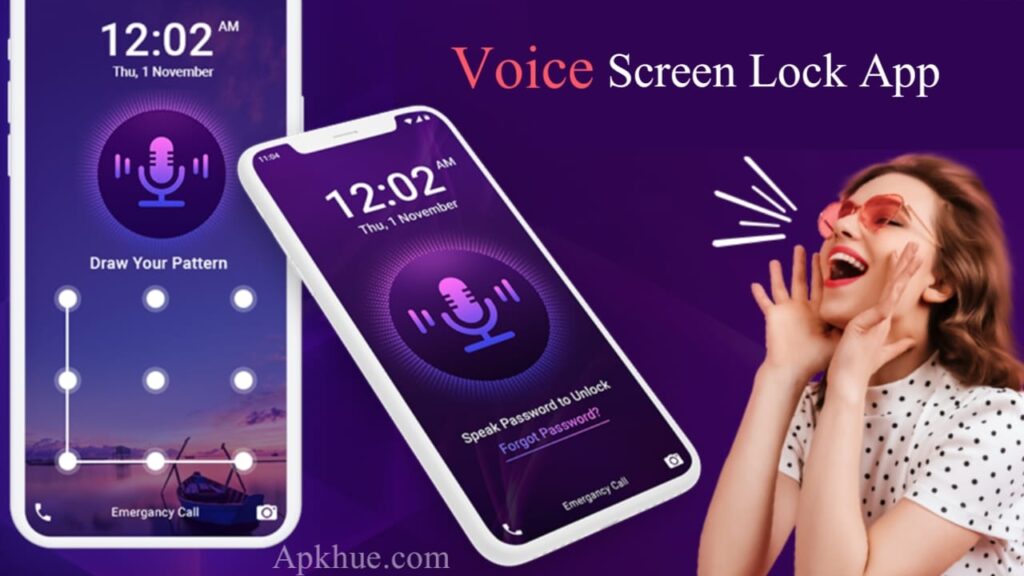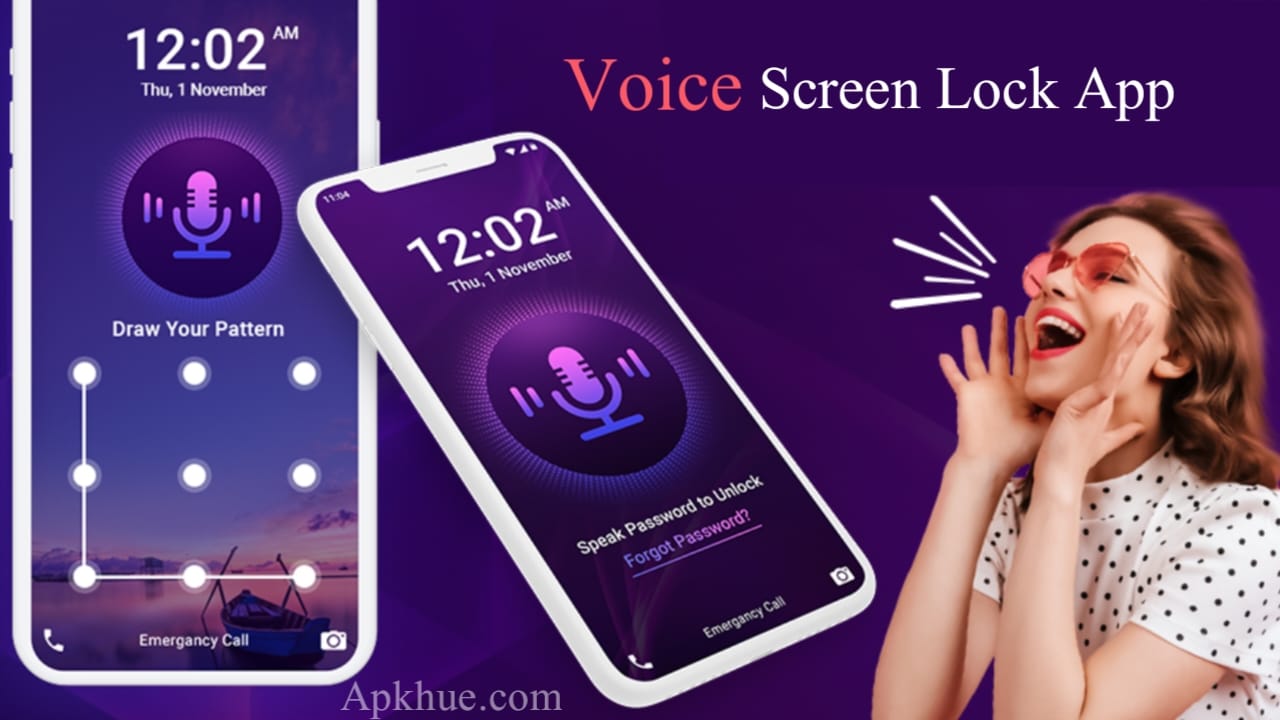Unveiling the Voice Screen Lock App In today’s digital world, security is a top priority for both individuals and organisations. With the increasing reliance on smartphones for communication, financial transactions, and access to sensitive information, strong protection against unauthorised access is critical. Traditional techniques like as PINs, passwords, and fingerprint recognition have prepared the way, but the advent of voice recognition technology opens up a new era in mobile security. This article explores the progression of security with the introduction of the Voice Screen Lock App, including its features, advantages, and future consequences.

Understanding Voice Recognition Technology
Voice recognition technology, a subset of biometric authentication, uses unique voice features to validate a person’s identity. It analyses pitch, tone, cadence, and pronunciation to generate a unique voiceprint for each user. This unique methodology has various advantages over traditional authentication methods:
1. Voiceprints are essentially unique to each person, making them far more secure than typical passwords or PINs, which may be forgotten, stolen, or guessed.
2. Comfort: Unlike passwords or PINs, which need human input, voice authentication provides a smooth and hands-free experience, increasing user comfort while maintaining security.
3. Accessibility: Voice recognition technology is especially useful for those with impairments or others who have difficulty using standard authentication methods, giving an inclusive alternative for accessing mobile devices.
Introducing the Voice Screen Lock App
The speech Screen Lock App is the pinnacle of improvements in speech recognition technology, providing a complete solution for smartphone security. Developed by prominent cybersecurity specialists, this cutting-edge programme combines state-of-the-art algorithms to provide unsurpassed security and user experience.
Key Features
1. Voice Enrollment: After installation, customers are invited to enrol their own voiceprints, which entails repeating a series of words to establish a personalised vocal profile. This initial configuration provides proper identification and authentication in later operations.
2. Multi-Factor Authentication: To increase security, the Voice Screen Lock App supports multi-factor authentication, which allows users to combine voice recognition with additional authentication methods like PINs or fingerprint scans for increased safety.
3. Adaptive Learning: The app uses adaptive learning algorithms to constantly improve and update users’ voiceprints based on use patterns and changes in vocal characteristics over time. This dynamic technique improves accuracy while minimising false positives and negatives.
4. Offline Authentication: Unlike cloud-based authentication methods, which require internet access and may pose privacy problems, the Voice Screen Lock App functions totally offline, assuring data privacy and security.
Benefits and Implications
The implementation of Voice Screen Lock App brings forth a plethora of advantages and ramifications for both individuals and organisations.
Increased Security: Using biometric authentication, the app provides strong security against unauthorised access, lowering the risk of data breaches and identity theft.
Seamless User Experience: Voice authentication’s hands-free nature improves user comfort and removes the need for manual input, speeding the unlocking procedure.
Regulatory Compliance: Organisations that follow severe data protection requirements such as GDPR and CCPA can demonstrate compliance by employing sophisticated security measures such as voice recognition technology.
Future Innovations: The incorporation of speech recognition technology into mobile security provides the path for new innovations like as voice-controlled transactions, virtual assistants, and personalised user experiences.
Challenges and Considerations
While the Voice Screen Lock App contains enormous promise, numerous issues and concerns deserve attention:
Accuracy and Reliability: Despite advances in voice recognition technology, the app’s efficacy is dependent on the accuracy and reliability of voiceprints, which can vary based on surrounding noise and variations in vocal patterns.
Privacy problems: The collection and storage of biometric data poses privacy problems, needing strong encryption and data security methods to prevent sensitive information from unauthorised access or abuse.
Accessibility and Inclusivity: While voice recognition technology improves accessibility for many users, it may pose difficulties for those with speech impairments or non-native accents, emphasising the significance of inclusive design approaches.
Conclusion
The speech Screen Lock App is a watershed moment in the advancement of mobile security, leveraging the power of speech recognition technology to provide superior safety and user experience. As organisations and individuals embrace this creative solution, it is critical to solve issues, preserve privacy standards, and promote diversity in order to realise the full potential of this disruptive technology. With continuous developments and acceptance, the future promises great opportunities for voice authentication to reshape the landscape of digital security.
